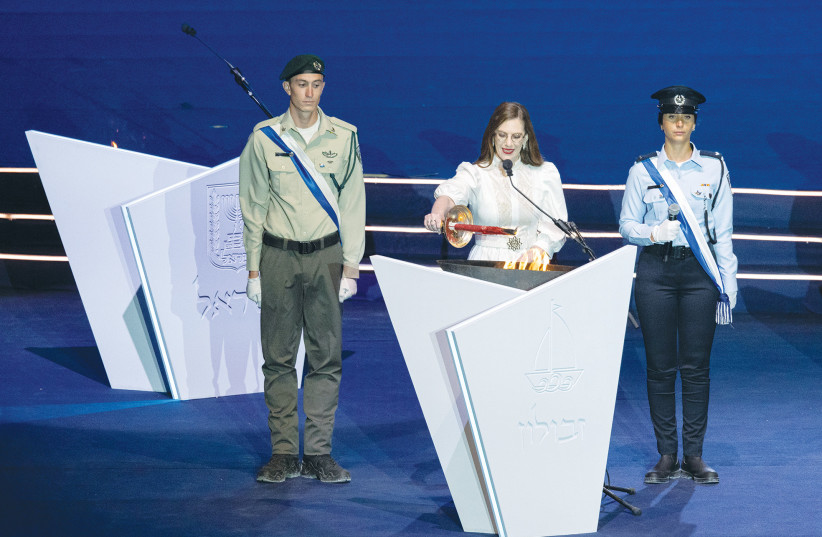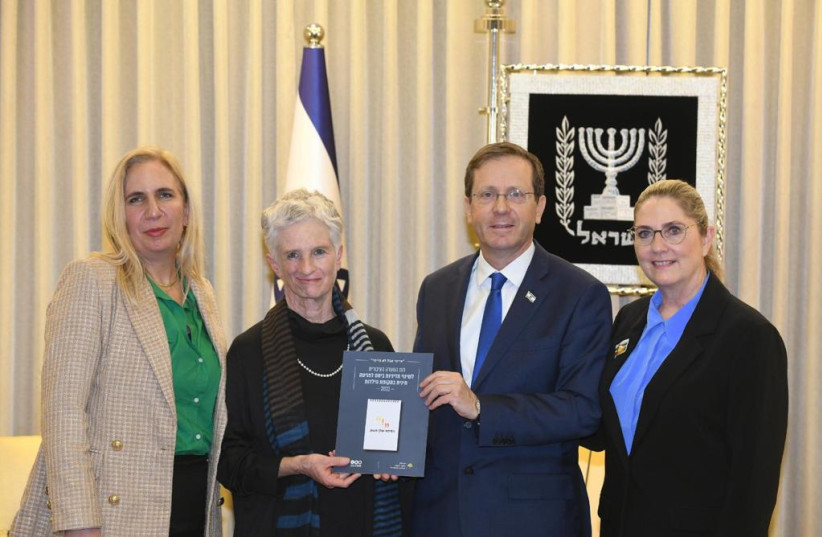Breaking the taboo on sexual abuse in all communities
Shame is a weapon used by abusers and predators across the social and religious spectrum, and we have got to take it away from them.

Survivors of sexual abuse carry shame and guilt, often for decades. It is society’s responsibility to say loudly that they carry no guilt for the crimes committed against them, and they should not feel shame, just because they are victims. Shame is a weapon used by abusers and predators across the social and religious spectrum, and we have got to take it away from them.
Yael Sherer is a survivor of domestic sexual abuse and the founder of the Lobby for the Fight Against Sexual Violence. I first came across her while reading a story in Israel Hayom last week about the lack of resources for facilities used in the acute treatment of children who have been sexually abused. The Lobby is one of myriad organizations that is trying to reduce the amount of abuse and support the survivors.
The prevalence of sexual predators, within so many communities, makes the hope of eradication of sexual abuse and rape of children almost utopian. However, there is much that can be done to reduce the dreadful impact. Closed communities, including the religious and haredi, are absolutely not alone in suffering this scourge but, because of the nature of the communities, the impact is often amplified.
According to Sherer, there remains a serious taboo around the subject across all sections of society. This translates into a lack of motivation by the myriad of government offices that should be tasked with protecting victims. “The complex issue of sexual abuse demands a complex and integrated response. That means coordination between government ministries, including education, justice, welfare, treasury and others. In reality, the only body able to lead this is the Prime Minister’s Office.”
Research shows that hundreds of thousands of Israelis are affected by sexual abuse meaning that this is not a marginal issue, but a national one and where victims still struggle to be heard.

Almost no senior Israeli politician has addressed the topic with only former prime minister Yair Lapid commenting on the subject. Even then, Lapid spoke only because of the nationalistic nature of a story that involved female prison warders being sexually attacked by Palestinian terrorist inmates.
Stigma is not unique to a single community or a single country.
Neil Henderson, CEO of UK charity Safeline was interviewed last month on the importance of breaking the taboo that still surrounds sexual abuse. Safeline is a specialist charity that works to prevent sexual violence and abuse and support those affected to cope and recover.
The organization published research showing that only a tiny percentage of victims actually report the abuse. And why is that? “This has a lot to do with ‘not being believed’ and the stigma of the subject.” In their research they have learned that female survivors, on average, keep their abuse to themselves for 25 years and men, who have been abused, for 40 years, before speaking out.
Two recent high-profile events stand out in the UK that have led to a change in attitudes. The first involves Broadchurch, a drama series which highlighted sexual abuse within the story line, and the footballers #metoo moment in 2016 when many high-profile professional footballers went public about abuse that they had suffered in in the 1970s, 1980s and 1990s.
The writers of Broadchurch were widely praised by campaigners for raising awareness and, commenting on the effects of the footballers speaking out, Henderson said “Calls to our helpline services have more than doubled following the disclosures of sexual abuse in football,” and this in the space of a number of months. “The footballers having the courage to disclose their abuse has helped thousands of other survivors to come forward and seek support for their abuse. If footballers can be believed, so can we.”
Walder, Meshi-Zahav, Elon
In the religious communities in Israel we have also witnessed a sea-change. High profile cases like Chaim Walder in the haredi community and Mordechai Elon in the national religious community have raised awareness. Where there were few activists and organizations before, there are now a growing body, some of whom are themselves the victims of abuse.
There are also dedicated professionals who see this field as their calling. What started as a Facebook group for haredim to share their stories turned into an organization driving more awareness and action. Started by a small number of dedicated volunteers, Lo Tishtok (literally, Don’t be Silent) became a lightning rod of grass roots action.
Young haredi journalists and activists have also made a real impact. Terrible stories of abuse have been highlighted by haredi journalists integrated within mainstream media, including on television and in print. No doubt this is changing awareness.
Magen is dedicated to creating safer Jewish communities in Israel and around the world, and is a rare instance of organizations joining together to create greater impact. According to CEO Shana Aaronson, there is a huge lack of education and awareness of what the schools should actually do to prevent abuse, or how to act and respond if abuse has happened. “This is even in schools that are interested and care and want to do the right thing. It’s obviously much worse in schools that are not.” However, since these high-profile cases “there has been a major increase in the number of victims seeking our help.”
Aaronson also added that the threat of legal action is also stirring change with schools. While there have only been a small number of successful suits, the threat of more has had its effect.
Allies across the spectrum
Sherer has spent the last decade walking the corridors of power building political allies for the policy changes she believes will make an impact. She has had successes and failures, and not necessarily based on the politics of her various political interlocutors. She has even made the economic case for government action and in talking to Globes recently stated: “It may be cynical to consider the cost of tears, fear, attempted suicides etc., but sometimes what can’t be measured doesn’t get counted.”
Research carried out in other countries has shown the enormous lifetime cost in welfare, health and other expenses but Sherer claims that “the economic expense resulting from sex abuse is considered taboo.”
The current and immediate past chairmen of the Constitution, Law and Justice Committee of the Knesset, MKs Gilad Kariv and Simcha Rotman could not be further apart politically. Sherer considers both to be allies, and both have given hours of committee time to create and approve critical changes in legislation that assists victims.
It is fashionable to attack current chair, MK Rothman, especially by those in the Center and Left of politics, due to his handling of the legal reform proposals, but Sherer was clear that he deserves significant praise for the way that he made sure to push forward practical measures to help victims of abuse. And yet, she feels that at the strategic level she is continually getting the run around with no one part of the government taking overall responsibility for this complex issue.
Civil society, community leadership and the power of the state need to combine in order to get to grips with the defense of children against sexual predators. Apart from the basic morality of society to take care of the most vulnerable of its members, the vast array of mental and other health and welfare problems are a huge and avoidable burden that the country bears as a cost of not doing so.
The writer is a founding partner of Goldrock Capital and the founder of The Institute for Jewish and Zionist Research. He is a former chair of Gesher, World Bnei Akiva, and the Coalition for Haredi Employment.
No comments:
Post a Comment